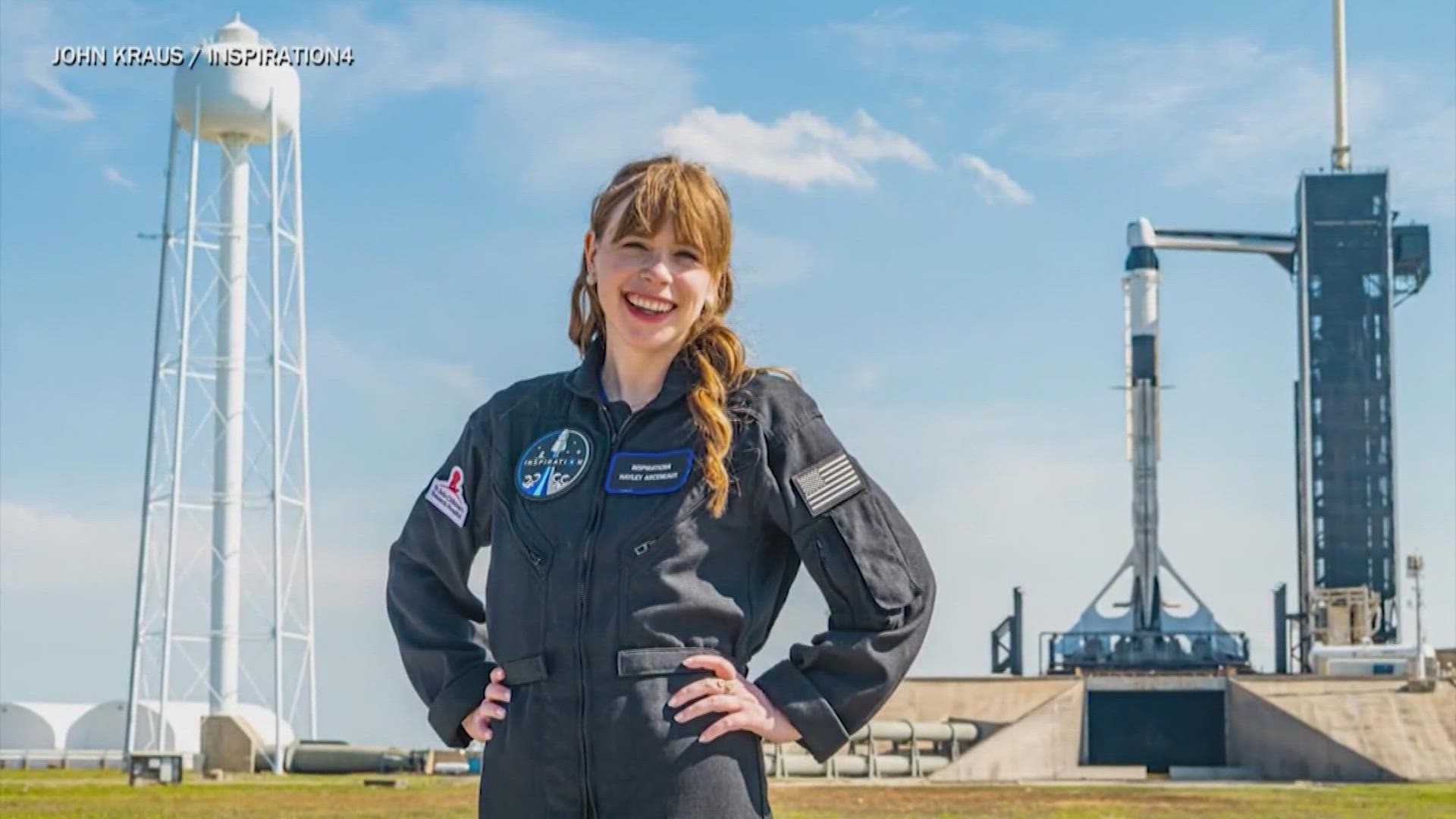HOUSTON — Space Center Houston exhibits feature all kinds of artifacts from past missions.
But SpaceX is making history this week
"A completely private orbital space flight that’s going to take real people into orbit around Earth for three days,” said Dorit Donoviel, executive directive of Baylor College of Medicine's Translational Research Institute for Space Health (TRISH).
TRISH is collaborating with SpaceX and others to investigate the effects of spaceflight on human health and performance.
"And we pulled together scientists from all over the country to coordinate the program,” Dr. Donoviel said.
KBR physician scientist Ashot Sargsyan of Houston has multi-purpose ultrasonic imaging devices onboard which work in conjunction with an iPhone 12 to help minimize storage space.
"You don’t have to be maximalist for science," Sargsyan said. "You can do science with very specific objective using small footprints.” "It's exciting research."
Experiments are also designed to be easily used by a civilian crew.
"Our experiment expects us to have novice operators," said KBR integration engineer Kadambari Suri. "So we are sending them with just the right training documents and enabling them to us the artificial intelligence features of the device.”
One of the civilians on the mission is 29 year-old Hayley Arceneaux.
She's a physician’s assistant for St. Jude Children’s Research Hospital in Memphis who was treated for bone cancer there as a child.
At some point while in orbit the crew is expected to talk with current patients.
"They’re going to see that somebody in their shoes, who also fought cancer, can go to space and show them what they’re capable of,” Arceneauz told CBS News.
Coincidentally, Arceneaux credits a childhood trip to Space Center Houston and JSC with initiating an interest in space travel.

